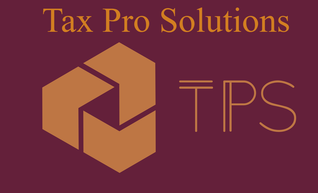SECTION 199A
What is Section 199A
Qualified Business Income (QBI), also known as the section 199A deduction, that may be available to individuals, including many owners of sole proprietorship, partnerships and S corporations. Some trusts and estates may also be able to take the deduction. This deduction, created by the 2017 Tax Cuts and Jobs Act, allows non-corporate taxpayers to deduct up to 20 percent of their QBI, plus 20% of qualified real estate investment trust (REIT) dividends and qualified publicly traded partnership (PTP) income.
Income earned through a C corporation or by providing services as an employee is not eligible for the deduction.
Income earned through a C corporation or by providing services as an employee is not eligible for the deduction.
What is Qualified Business Income (QBI)
There are 2 Components to this:
1. QBI Component: This deduction allows 20% of QBI from domestic business operated as Sole Proprietorship or through partnership, S Corp, trust or estate. There is an income limitation (discussed below) but it is also subject to multiple limitations including type of trade or business, the amount of W-2 wages paid by the qualified trade or business and unadjusted basis immediately after acquisition (UBIA) of qualified property held by trade or business.
2. REIT/PTP Component: This deduction allows 20% of combined quailified (REIT) dividends and qualified PTP income. This component is not limited to W-2 wages or UBIA of qualified property.
CALCULATION:
Determination of deductible amount for each qualified trade or business is the lesser of-
(a) 20 percent of the taxpayer’s qualified business income with respect to the qualified trade or business, OR
(b) the greater of-
(i) 50 percent of the W-2 wages with respect to the qualified trade or business, or
(ii) the sum of 25 percent of the W-2 wages with respect to the qualified trade or business, plus 2.5 percent of the unadjusted basis immediately after acquisition of all qualified property (in other words, prior to any depreciation).
1. QBI Component: This deduction allows 20% of QBI from domestic business operated as Sole Proprietorship or through partnership, S Corp, trust or estate. There is an income limitation (discussed below) but it is also subject to multiple limitations including type of trade or business, the amount of W-2 wages paid by the qualified trade or business and unadjusted basis immediately after acquisition (UBIA) of qualified property held by trade or business.
2. REIT/PTP Component: This deduction allows 20% of combined quailified (REIT) dividends and qualified PTP income. This component is not limited to W-2 wages or UBIA of qualified property.
CALCULATION:
Determination of deductible amount for each qualified trade or business is the lesser of-
(a) 20 percent of the taxpayer’s qualified business income with respect to the qualified trade or business, OR
(b) the greater of-
(i) 50 percent of the W-2 wages with respect to the qualified trade or business, or
(ii) the sum of 25 percent of the W-2 wages with respect to the qualified trade or business, plus 2.5 percent of the unadjusted basis immediately after acquisition of all qualified property (in other words, prior to any depreciation).
Income Limitations
Based on taxable income including all sources (not just business income). Also limited to 20% of taxable income.
- Single is $157,500 completely phased out by $207,500 (adjusted for inflation).
- Married filing jointly is $315,000 completely phased out by $415,000 (adjusted for inflation). Same thing here- $315,000 is the end of the 24% marginal tax bracket.
What is a qualified trade or business?
Pass-thru entities and structures include
Interestingly, removed from the traditional service profession are engineers and architects. But an engineer operating a business based on his or her reputation or skill is still a specified service trade.
Note: Cooperatives do not qualify for the QBI deduction under section 199A(a) but may be eligible to take the section 199A(g) deduction. Section 199A(g) provides a deduction for Specified Agricultural or Horticultural Cooperatives (Specified Cooperatives) and their patrons similar to the deduction under former section 199, which was known as the domestic production activities deduction. The IRS issued additional guidance for cooperatives and their patrons on June 18, 2019.
- Sole proprietorship (no entity, Schedule C).
- Real estate investors (no entity, Schedule E).
- Disregarded entities (single member LLCs).
- Multi-member LLCs.
- Any entity taxed as an S corporation.
- Trusts and estates, REITs and qualified cooperatives
- Traditional service professions such as doctors, attorneys, accountants, actuaries and consultants.
- Performing artists who perform on stage or in a studio.
- Paid athletes.
- Anyone who works in the financial services or brokerage industry.
Interestingly, removed from the traditional service profession are engineers and architects. But an engineer operating a business based on his or her reputation or skill is still a specified service trade.
Note: Cooperatives do not qualify for the QBI deduction under section 199A(a) but may be eligible to take the section 199A(g) deduction. Section 199A(g) provides a deduction for Specified Agricultural or Horticultural Cooperatives (Specified Cooperatives) and their patrons similar to the deduction under former section 199, which was known as the domestic production activities deduction. The IRS issued additional guidance for cooperatives and their patrons on June 18, 2019.



